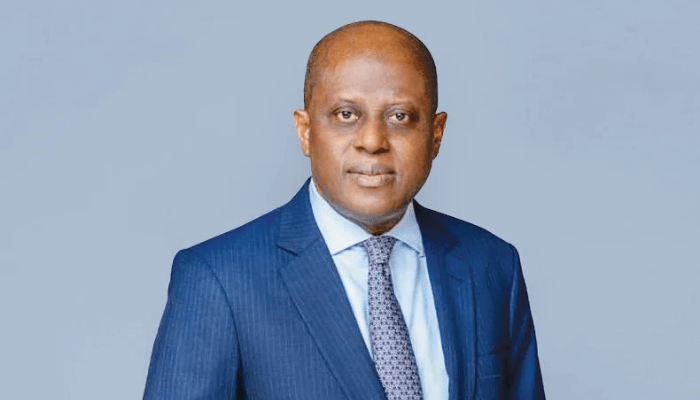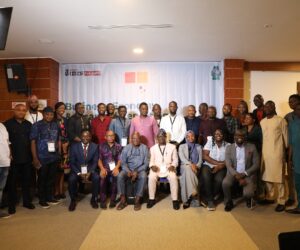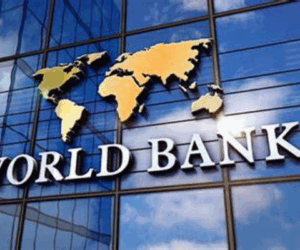…FX reserves jump 26% on surging inflows
…Interest rates rise six times in response to galloping inflation
Olayemi Cardoso is celebrating his two years in office today as governor of the Central Bank of Nigeria (CBN). So far, he has shored up foreign reserves, eased foreign exchange (FX) pressure, and steadied the naira. However, critics warn that his aggressive monetary tightening is crowding out private investment and stifling credit.
Cardoso assumed office in an acting capacity on September 22, 2023. Since then, external reserves have grown by $8.76 billion, rising from $33.23 billion to $41.99 billion as of September 18, 2025.
Cardoso did not just achieve this without implementing significant reforms. He cleared the FX backlog left by his embattled predecessor, liberalised the market and enhanced transparency, boosting investor confidence.
“In 2024, external reserves appreciated due to key reforms by the CBN such as clearing of the FX backlog, raising interest rates, and tightening FX policy,” analysts at FSDH Merchant Bank explained.
According to the CBN, FX reserves are assets held in foreign currencies by a monetary authority to back liabilities and influence monetary policy. These reserves include: foreign banknotes, deposits, bonds, treasury bills, and other foreign government securities. They serve multiple purposes but are primarily held to ensure that a government or its agency has backup funds in case of a rapid devaluation of the national currency. Foreign exchange reserves are also referred to as international or external reserves.
Steep naira fall tempered by stability

The naira has maintained relative stability against the dollar after depreciating by 47 percent within the two-year period. The local currency, which traded at N789 on September 3, 2023, weakened by N708 to close at N1,497 on September 19, 2025, at the Nigerian Foreign Exchange Market (NFEM), according to the CBN data.
At the parallel market, popularly known as the black market, the naira depreciated to N1,525 as of September 19, 2025, representing a 35.08 percent decline compared with N990 quoted on September 22, 2023.
In spite of the steep depreciation of the naira, the Cardoso-led CBN has achieved currency stability, reviving investor interest in Nigeria’s assets.
“Though the naira has depreciated under Cardoso, raising the cost of living in Nigeria, it has been offset by the stability and predictability which have attracted investors,” said Ike Ibeabuchi, an emerging markets analyst.
Exchange rate unification

In November 2024, Cardoso highlighted the CBN’s efforts to unify Nigeria’s multiple exchange rates, with a view to eliminating market distortions and restoring transparency, while creating a more predictable environment for businesses.
“Over the past year, we have undertaken critical reforms to unify Nigeria’s exchange rate, eliminating distortions and restoring transparency. This unification has enabled us to clear outstanding FX obligations, giving businesses, ranging from manufacturers to airlines, the confidence to plan and invest in the future,” he explained.
To further enhance efficiency in the FX market, the CBN introduced an electronic FX matching system, a platform that had already proven effective in other markets.
The impact of these reforms has been reflected in key indicators. According to Cardoso, the average daily turnover in the Nigerian Autonomous Foreign Exchange Market increased by 226 percent in the first half (H1) of 2024, compared with the same period in 2023. Foreign portfolio inflows surged by over 72 percent during the same period, while reserves climbed to $40 billion from $32 billion in May 2023, reaching their highest level in nearly three years.
The market also facilitated over $9 billion in capital outflows in the past year, allowing investors to repatriate capital and dividends without delays. Additionally, Nigeria recorded a $6 billion current account surplus in H1 of 2024, driven by increased domestic refining capacity, a shift toward non-oil exports, and higher remittance inflows.
Ayodeji Ebo, managing director/CBO at Optimus by Afrinvest, said the CBN governor has, within two years, helped to restore the respect and integrity of the apex bank through improved accountability and transparency.
According to him, notable achievements include: the timely release of audited accounts, enhanced FX liquidity and stability, and the publication of more frequent reports that provide useful insights on the economy.
Given Nigeria’s import-dependent structure, the relative appreciation and stability of the naira are positive developments that support business planning and investor confidence.
Read also: Yemi Cardoso: Two years after…
FX inflows

Foreign portfolio investors (FPIs) have remained the dominant source of liquidity in the FX market in the last two years, accounting for about 86 percent of FX supply from foreign sources and approximately 32 percent of total FX inflows. Within the FPI category, capital inflows into fixed-income instruments were the largest contributors at $951 million, representing about 87 percent of total FPI inflows, while equity-related inflows made up $139 million.
In contrast, inflows from foreign direct investments (FDIs) have remained subdued, falling to $22 million from $49 million. From domestic sources, inflows from non-bank corporates, which have accounted for about 25 percent of total FX supply, declined by 28 percent month-on-month to $826 million in August 2025, compared with $1.2 billion in July.
Amid the decline in supply from major sources, the CBN increased its interventions to support liquidity in the FX market. In August 2025, the bank sold $574 million, up from $326 million in the previous month.
Inflation

Inflation declined from 26.72 percent in September 2023 to 20.12 percent in August 2025 under Cardoso. However, this may be attributed to the rebasing of the Consumer Price Index (CPI), which led to the decline in headline inflation.
However, the efforts of the Cardoso-led CBN cannot be too stressed. In response to elevated inflation, which hit a 22-year high of 27.33 percent year-on-year in October 2023, the CBN implemented various measures, including periodic Open Market Operations (OMO) to mop up liquidity. The bank also issued higher-yield treasury bills, removed the cap on the remunerable Standing Deposit Facility (SDF) window, and introduced regular debits on the Cash Reserve Requirement (CRR). These efforts contributed to Nigeria’s headline inflation decelerating to 20.12 percent, down from 21.88 percent in July 2025, according to data from the National Bureau of Statistics (NBS).
By 2025, the CBN adopted a more measured monetary policy stance, holding rates steady throughout the first half of the year. This shift marked a transition to a more orthodox and predictable approach after a cumulative 875 basis points hike in the Monetary Policy Rate (MPR) in 2024, aimed at taming inflation, stabilising the naira, and improving investor confidence.
Interest rate hikes
The Cardoso-led CBN has raised interest rates six times to tame the rising inflation.
The interest rate has risen to 27.25 percent under Cardoso, from 18.75 percent when he assumed office.
The high interest rate has attracted portfolio investments into Nigeria, but also stifled credit.
“One key area for improvement—though admittedly a ‘chicken and egg’ situation—is the need for lower interest rates. Reducing the cost of finance would encourage business expansion and ease the financial burden on companies,” Eboh, earlier quoted, said.
Muda Yusuf, CEO of the Center for the Promotion of Private Enterprise, said elevated lending rates have suppressed private sector borrowing, particularly in manufacturing, agriculture, small businesses, real estate, among others.
“There is a growing risk that private investment could be displaced by high-yield government instruments,” he said.
“Small and medium enterprises face limited access to affordable credit.”
Banking sector capitalisation
The Cardoso-led CBN also announced bank recapitalisation to strengthen financial institutions. Banks had collectively raised over N13 trillion in fresh equity capital as of mid-2025, significantly strengthening their capital buffers and improving resilience to credit risk, according to a new report by Proshare. Access Holdings Plc, Wema Bank, Zenith Bank, Lotus Bank, Jaiz Bank, Providus Bank, Stanbic IBTC, and Greenwich Merchant Bank have all met the requirements.
“Calibrate cash reserve ratio (CRR) and the monetary policy rate (MPR) downward as inflation moderates to create a more enabling credit environment. Complement monetary tightening with supply-side measures to address structural inflation drivers,” Yusuf recommended.
He further urged Cardoso to promote development finance instruments and deepen the domestic bond market to mobilise resources for infrastructure.









